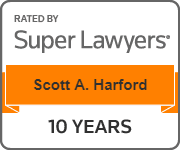New York City Product Liability Lawyer

Designers and manufacturers of commercial products have a responsibility to ensure the products they bring to the marketplace are safe when used as intended and do not pose a threat to consumers. A person should be able to trust that a product they purchase and use according to the instructions is free of dangerous defects. Unfortunately, flaws in the design, manufacture, and marketing of a wide range of products can lead to severe harm even when consumers use them properly.
Have you or someone close suffered an injury caused by a dangerous or defective product in New York? The law allows you to pursue financial compensation from manufacturers and others involved in bringing the product to market. However, big companies will fight hard to avoid liability. You will need legal advice and advocacy to help you stand up for your rights and interests. Let a New York City product liability lawyer from Harford, P.C., pursue the justice you need and deserve.
Our founding attorney, Scott A. Harford, formerly worked as an attorney for Fortune 500 corporations and big insurers. He brings unique insight into how deep-pocketed companies defend against injury claims and take advantage of severely injured people. Today, Scott uses his experience and knowledge to develop legal strategies to help clients recover the compensation they need to heal and put their lives back on track.
After an accident involving a dangerous or defective product, turn to a defective product lawyer from Harford, P.C., for help holding manufacturers and other corporations accountable. Contact us for a free initial case review to discuss how our firm can help you pursue financial recovery for your medical bills, lost income, property damage, and pain and suffering.
Benefits of Hiring a New York City Product Liability Law Firm
An accident with a dangerous or defective product can cause injuries requiring extensive medical treatment and rehabilitation. Although you may incur significant losses from medical expenses and lost wages, you can pursue financial recovery from the corporations who made and sold the product that injured you.
Hiring a product liability law firm such as Harford, P.C., can help by allowing you to focus on your physical and emotional recovery. Our firm can handle all the details of preparing and pursuing your legal claims, including:
- Investigating the accident that injured you to secure evidence for your claim, including accident scene photos and eyewitness testimony
- Working with engineering or product safety experts to help explain how the product’s defect made it unsafe to use
- Documenting your injuries and losses to determine what fair compensation looks like in your case
- Identifying potentially liable parties and evaluating your options for financial recovery
- Negotiating with corporate representatives, insurance companies, and defense attorneys to pursue a settlement that pays you the compensation you need and deserve
- Taking your claims to court and trial when necessary to fight for the best possible results in your case
What Is Product Liability?
Product liability is a field of personal injury law involving cases arising from accidents caused by dangerous or defective products. Product liability claims hold manufacturers or other businesses involved in creating, marketing, and selling a product responsible for injuries sustained by a consumer or user of a dangerous or defective product. New York product liability law holds companies strictly liable for product defects that injure people.
What Compensation Could You Recover for Defective Product Injuries?
In a product liability claim, you may have the right to pursue financial recovery for ongoing and future losses that arise from injuries or property damage caused by a defective product. Your compensation claim can provide you with money for your:
- Medical expenses, including emergency care, surgery, hospitalization, pain management care, and physical or occupational therapy
- Expenses associated with long-term disability care or replacement services (such as housekeeping, home maintenance, or childcare)
- Lost income and loss of future earning capacity
- Cost of repair or replacement of personal property damaged in the accident
- Physical and emotional pain and suffering
- Lost enjoyment and quality of life resulting from your injuries
What Should You Do if a Defective Product Hurts You?
After an accident caused by a defective product, you can take steps to protect your legal options for pursuing financial recovery for any resulting injuries. Here are the steps to take after a defective product injures you:
- Seek medical attention right away and begin any necessary treatment
- Follow your doctor’s treatment recommendations and recovery instructions
- Get copies of medical records of your treatment and physical rehab
- Keep the product that injured you (if safe to do so) or photograph it
- Retain all bills, invoices, and receipts for expenses incurred during your recovery
Finally, contact a New York City product liability lawyer from Harford, P.C., as soon as possible to get started on your legal claims.
Who Is Liable if You Are Injured or Damaged by a Defective Product?
When a person gets hurt or killed by a dangerous or defective product, various companies in the chain of commerce to bring that product to market may bear liability for the injured victim’s financial and personal losses, depending on the specific nature of the product defect.
Examples of parties who may bear liability for dangerous or defective products include:
- Designers
- Materials or components manufacturers
- Final manufacturers and assemblers
- Distributors
- Retailers
Client Testimonials
“I would recommend him to anyone because he truly cares for his clients. Thank you Scott and may God bless you and your work.”
– Melvin Cannon, Bronx, New YorkWhat Are Common Examples of Defective Products?
Although any product may suffer from a defect that makes it dangerous, some products more frequently give rise to product liability claims. Common examples of products that suffer from dangerous defects include:
- Vehicle components, including tires, brakes, and transmissions
- Motorized vehicles, such as ATVs and e-scooters
- Medical devices, including breast implants, pelvic meshes, stents, IVC filters, and artificial joints
- Infant and child products, such as toys, strollers, rockers, cribs, and car seats
- Pharmaceuticals
- Cosmetics and personal care products
- Household appliances
- Cleaning products
- Lawn care or gardening products
- Industrial equipment and machinery
What Are the Different Kinds of Defective Product Liability Claims?
Product liability claims may involve legal theories of strict liability, negligence, or breach of warranty. Strict product liability claims can allege three types of product defects:
- Design Defect – A design defect claim alleges that some aspect of a product’s specifications renders the product inherently dangerous to use for intended or foreseeable purposes. Design defects render every example of the product sharing the defective design element dangerous.
- Manufacturing Defect – A manufacturing defect claim alleges that some error during the manufacturing, fabrication, or assembly process caused a product to deviate from design specifications and become dangerous to use. Manufacturing defects can affect one example of a product or an entire production run.
- Marketing Defect – Also called a failure-to-warn claim, a marketing defect claim alleges that a product came with insufficient warnings of the risks of using the product or inadequate instructions for the product’s safe use.
A breach of warranty claim alleges that a product failed to meet an express or implied warranty provided by the product’s manufacturer or retailer. As a result, the consumer or user got hurt in an accident caused by the breach of warranty. Breach of warranty claims may also require an injured person to prove the product’s lack of fitness for its ordinary purposes.
Finally, injured consumers may allege that a designer or manufacturer negligently designed or fabricated a product. However, because proving negligence in a product liability claim can become challenging, injured consumers typically pursue strict liability claims against companies.
What If a Family Member Dies Because of a Defective Product?
A defective or dangerous product may fatally injure a consumer. When a person dies in an accident caused by a defective product, their family may have the right to pursue financial recovery through a wrongful death claim. A wrongful death claim can allow surviving family members to recover compensation for financial and personal losses, such as:
- Conscious pain and suffering experienced by the decedent
- Medical expenses incurred to treat the decedent’s final injury or illness
- Loss of the decedent’s financial support to the family
- The value of services the decedent would have provided to their family or household
- The value of the decedent’s nurturing, care, or guidance to their children
- Surviving family members’ lost inheritance
How Long Do You Have to File a Defective Product Liability Claim in New York City?
Under New York’s statute of limitations on product liability claims, you typically have three years to file a lawsuit against a manufacturer or other company responsible for putting the dangerous or defective product on the market.
Although three years may sound like plenty of time to file your claim, you can best protect your legal options by talking to a product liability lawyer in New York City as soon as possible after an accident to file your claims on time. Otherwise, you may lose the right to seek financial compensation if you file a lawsuit after the limitations period has expired.
Contact a Product Liability Lawyer in New York City Today
After an accident involving a defective or dangerous product, you may have the right to seek compensation for your injuries. Contact Harford, P.C., today for a free, no-obligation consultation with a New York City product liability attorney to discuss your legal options. We’ll help you hold accountable those responsible for putting a dangerous or defective product on the market.







